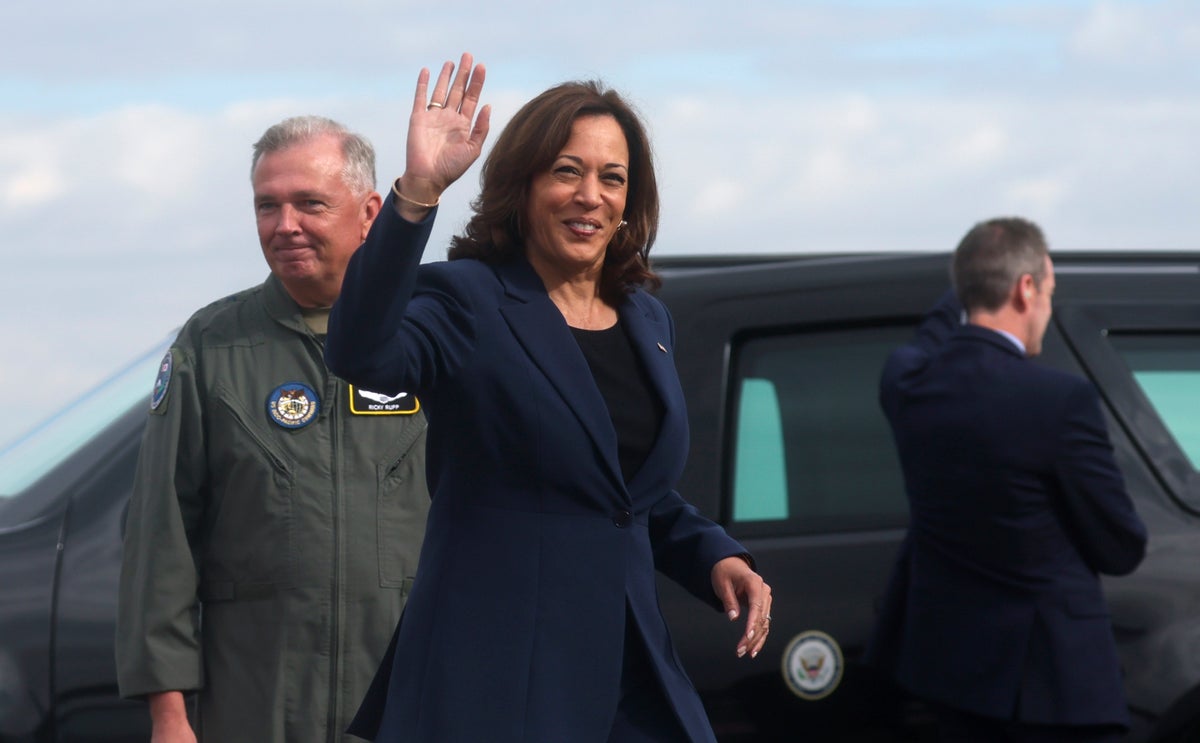
U.S. Vice President Kamala Harris is capping her four-day trip to Asia with a stop at the heavily fortified Demilitarized Zone dividing the Korean Peninsula as she tries to demonstrate the U.S. commitment to the security of its Asian allies.
The visit on Thursday comes on the heels of North Korea’s latest missile launches and amid fears that it may conduct a nuclear test. Visiting the DMZ has become something of a ritual for American leaders hoping to show their resolve to stand firm against aggression.
North Korea fired two short-range ballistic missiles on Wednesday, while Harris was in Japan, and had fired one before she left Washington on Sunday. The launches contribute to a record level of missile testing this year.
Harris was traveling to Seoul after three days in Tokyo, where she denounced North Korea’s “illicit weapons program” during a speech on an American destroyer at a naval base. She was in Tokyo to attend the state funeral of former Japanese Prime Minister Shinzo Abe.
In Washington, White House press secretary Karine Jean-Pierre said the latest missile tests would not deter Harris from the DMZ and that she wanted to demonstrate America's “rock-solid commitment” to regional security.
"As you know, North Korea has a history of doing these types of tests," Jean-Pierre said, calling it “not unusual.”
Before stopping at the DMZ, Harris was to meet with South Korean President Yoon Suk Yeol, who took office in May. Despite the close alliance between the United States and South Korea, the relationship has been marked by tension recently.
A new law signed by President Joe Biden prevents electric cars built outside of North America from being eligible for U.S. government subsidies, undermining the competitiveness of automakers like Seoul-based Hyundai.
South Koreans have reacted with a sense of betrayal, and Harris acknowledged the dispute in a conversation with the country's prime minister, Han Duck-soo, on Tuesday in Tokyo.
“They pledged to continue to consult as the law is implemented,” the White House said of the meeting.
There could be more tension over gender issues during Harris' visit to South Korea. Harris, the first woman to serve as U.S. vice president, planned to hold a roundtable with female leaders on gender equity issues. Yoon has faced criticism for the lack of female representation in his government.
As they did in Japan, however, regional security issues were likely to dominate the final day of Harris’ trip.
A North Korean nuclear test could come after China holds its Communist Party convention on Oct. 16 but before the United States holds its midterm elections on Nov. 8, according to South Korean lawmakers who attended a closed-door briefing from the National Intelligence Service.
The spy agency repeated its earlier assessment, shared by U.S. intelligence, that North Korea had restored an underground tunnel at its nuclear testing facility as part of its preparations.
North Korea has used Russia’s war on Ukraine to accelerate its arms development. It has tested dozens of weapons, including its first long-range missiles since 2017, exploiting a divide in the U.N. Security Council, where Moscow and Beijing have blocked Washington’s attempts to tighten sanctions on Pyongyang.
Missiles tests have been punctuated by repeated threats of nuclear conflict. Pyongyang’s rubber-stamp parliament also authorized the preemptive use of nuclear weapons in a broad range of scenarios where its leadership comes under threat.
South Korea and the United States this year resumed large-scale combined military exercises that had been downsized or suspended under President Donald Trump to support his ultimately fruitless nuclear diplomacy with North Korean leader Kim Jong Un.
Senior U.S. and South Korean officials met in Washington this month for discussions on improving the allies’ deterrence strategies, but some experts said the meeting failed to produce anything new and exposed a lack of ideas on how to deal with the North’s evolving threat.
Some South Koreans have expressed interest in the redeployment of U.S. tactical nuclear weapons after their removal from South Korea in the 1990s and even for the country to pursue its own nuclear weapons program.
Yoon, during a news conference in August, said his government had no plans to pursues its own deterrent and called for North Korea to return to nuclear diplomacy, which imploded in 2019 over disagreements on exchanging the release of crippling U.S.-led sanctions against the North and the North’s disbarment steps.







